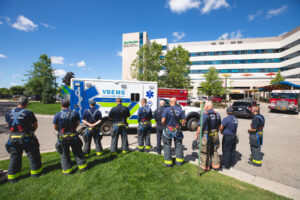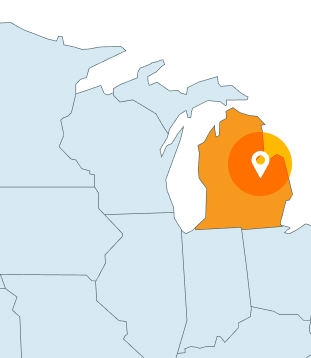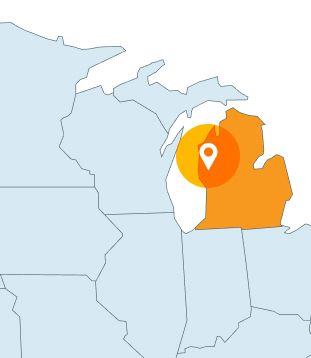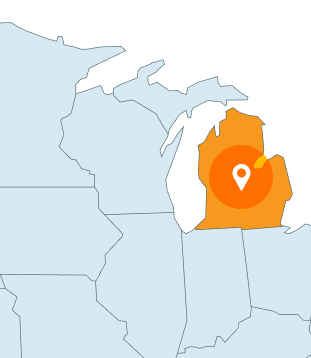Spinal Cord Injury Rehabilitation
Life doesn’t stop after a spinal cord injury, and neither should you. At Mary Free Bed, we’re here to help you rediscover your strength, independence, and the moments that matter most.
We know the challenges you face are more than physical—they’re emotional and practical, too. That’s why our spinal cord injury rehabilitation program takes a holistic approach to your recovery. Guided by your goals and what gives your life meaning, we’ll create a personalized plan to help you move beyond your injury and reclaim your life.
With determination, expert support and cutting-edge technology, we’ll start the journey to recovery together.
Why choose Mary Free Bed?
Every spinal cord injury (SCI) recovery is different. Mary Free Bed has been a leader in rehabilitation for over 130 years. While rooted in tradition, we remain on the cutting edge of rehabilitation technology, research and techniques.
Rehabilitation plays a crucial role in recovering from a spinal cord injury. Studies confirm that beginning rehabilitation early significantly improves outcomes. With our expert programs, years of experience, and dedicated, compassionate care, we are here to support you and your loved ones on your recovery journey.


Specialty Spinal Cord Injury Accreditation
Our inpatient Spinal Cord Injury Program is accredited by the Commission on Accreditation of Rehabilitation Facilities International (CARF). This rigorous process ensures the highest level of care from your physicians, therapists and nurses who specialize in spinal cord injury rehabilitation and recovery.
Mary Free Bed is a Spinal Cord Injury Model System in collaboration with the University of Michigan. We combine research and integrate best practices with goals to advance the future of SCI care and recovery.
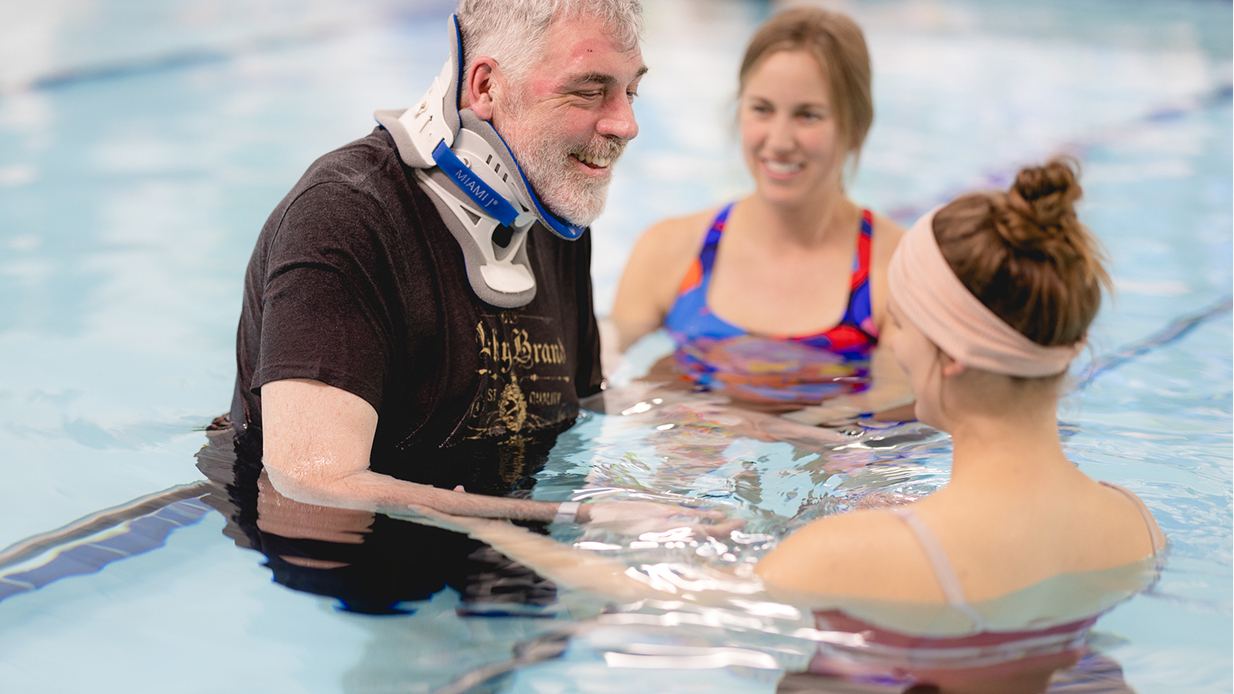
Sky’s the Limit – Spinal Cord Injury Care at Mary Free Bed Rehabilitation
Your Spinal Cord Injury Recovery Journey at Mary Free Bed
Inpatient Rehabilitation: Spinal Cord Injury Care
Our spinal cord injury rehabilitation program helps you gain as much independence as possible by focusing on your physical, emotional, and mental health. We’ll work with you to rebuild skills and find ways to handle challenges. In our calm and caring environment, our team will cheer you on during the good days and support you through the tough ones. Your therapy plan will be created just for you, based on your needs and what you can handle. Most patients have three hours of therapy a day, five days a week. Therapy includes building strength, improving hand movements, and learning new ways to do daily activities like getting dressed or driving. We also welcome your loved ones to join therapy sessions and learn alongside you, so they can support you on your journey.
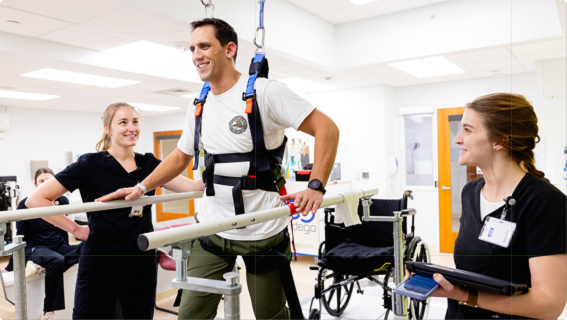
Outpatient Therapy
Even after you graduate from inpatient care, we provide continued therapy and support through our outpatient Spinal Cord Injury Clinic. Mary Free Bed provides a full spectrum of care, including specialized therapy, home and community services and life-long follow-up care.
Our SCI Clinic offers a range of therapy services, technology and treatment, whether you’re a graduate of our inpatient Spinal Cord Injury Program or you were referred by a physician for outpatient treatment. A thorough evaluation allows us to create a therapy plan to best meet your needs.
The length of treatment can vary from a few sessions to a couple of months.
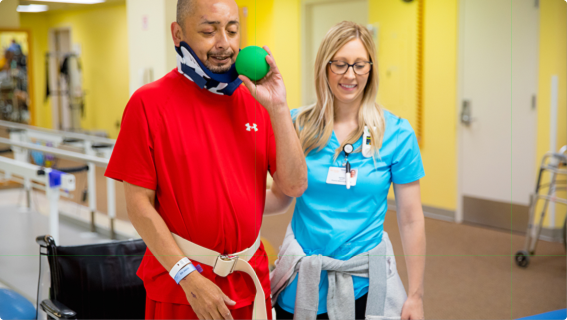
Ongoing Support
We’re committed to supporting you for as long as you need us. After completing inpatient care, we offer:
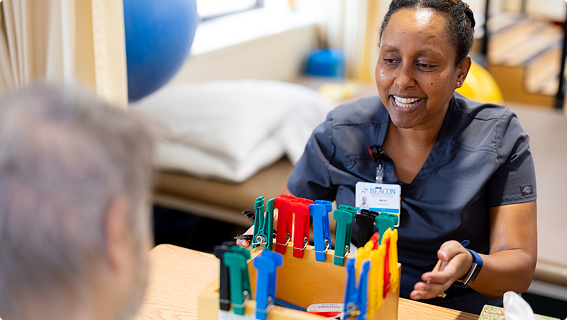
Specialty Services
To enhance your recovery, we coordinate access to services like:
- Wheelchair and Adaptive Sports Program
- Driver Readiness Screening
- Assistive Technology
- Aquatic Therapy
- Spasticity Management
- Neuropsychology
- Orthotics & Prosthetics + Bionics
- Vocational Rehabilitation
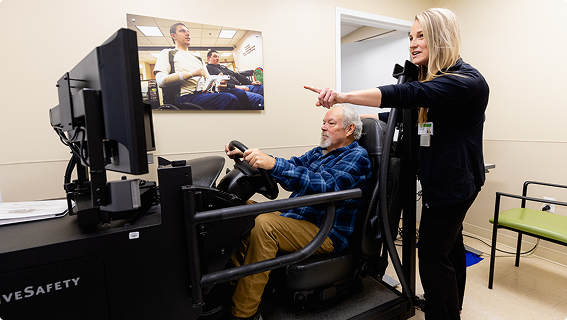
Community Resources
- Spinal Cord Injury Support Groups: Monthly support groups to connect with others recovering from a spinal cord injury. Learn More
- Mentorship Opportunities: Pairing with others who have experienced a spinal cord injury and can provide insight and encouragement. Learn More
- Adaptive Sports: Programs for all ages to rediscover the joy of recreational activities, sports, camaraderie and competition. Learn More
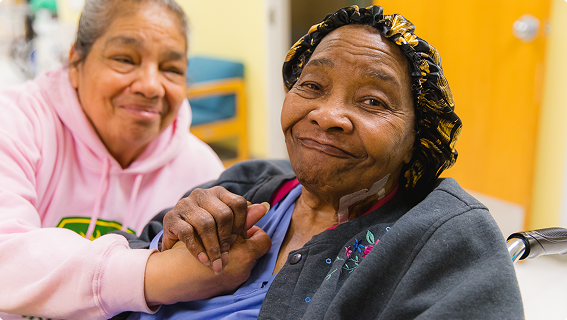
Meet Your spinal cord Injury rehabilitation Team
Your dedicated team includes specialists from various disciplines, all of them experts in spinal cord injury recovery. They work together to maximize your recovery and independence.
You and your family or caregivers are the most important members of the team. You’re encouraged to have an active role in your treatment plan and help set goals for your rehabilitation.
Frequently Asked Questions
Here are questions we often hear from patients who have experienced a spinal cord injury. Talk with your treatment team about specific questions or concerns.
What do “complete” and “incomplete” spinal cord injury mean?
A “complete” injury means that damage to the spinal cord is quite severe; at the time of diagnosis, there is no feeling or movement below the point of injury to the spinal cord.
An “incomplete” injury means there’s some feeling or movement below the point of injury, but how much function will return remains to be seen.
Will I ever walk again?
At the beginning of your rehabilitation, it can be difficult for your doctors to know whether walking is likely. Doctors base their prognosis upon their assessment of your injury and will provide their best guidance according to that assessment. They’ll look at the degree of damage to your spine, and the location of the damage along the spinal cord. People with more incomplete injuries lower on the spine typically regain more function and have a better chance of returning to some type of walking.
Will I be able to go home?
Our goal is your goal – to get you back home. Some of our patients have mixed feelings about leaving the security of the hospital, but your team will help you prepare to go home throughout your rehabilitation stay. We focus on helping you find resources and develop the skills necessary for independent living.
Will I be able to return to work, school or the other activities I did before my injury?
Your ability to resume specific activities – whether it’s your job or a beloved hobby – will depend on the severity and complexity of your injury. However, returning to work, school and your favorite leisure activities is heartily encouraged, and your treatment team will work very closely with you, your employer and others to help you achieve your goals.
Will I be able to have children?
Depending upon the severity of your spinal cord injury, sexual functioning may be affected. A spinal cord injury can affect sensation, sexual response and sexual performance. Although it can affect fertility, it doesn’t rule out the prospect of conceiving or having children.
Since every injury affects each person differently, it’s important to discuss your concerns or questions with your physician and treatment team. Your physician may refer you to a specialist (gynecologist/obstetrician, urologist) who can provide additional consultation and information.
Advanced Technology and Specialized Spaces
At Mary Free Bed, technology and innovative spaces play a critical role in your recovery:Mary Free Bed offers a wide range of programs to address specific needs, including:


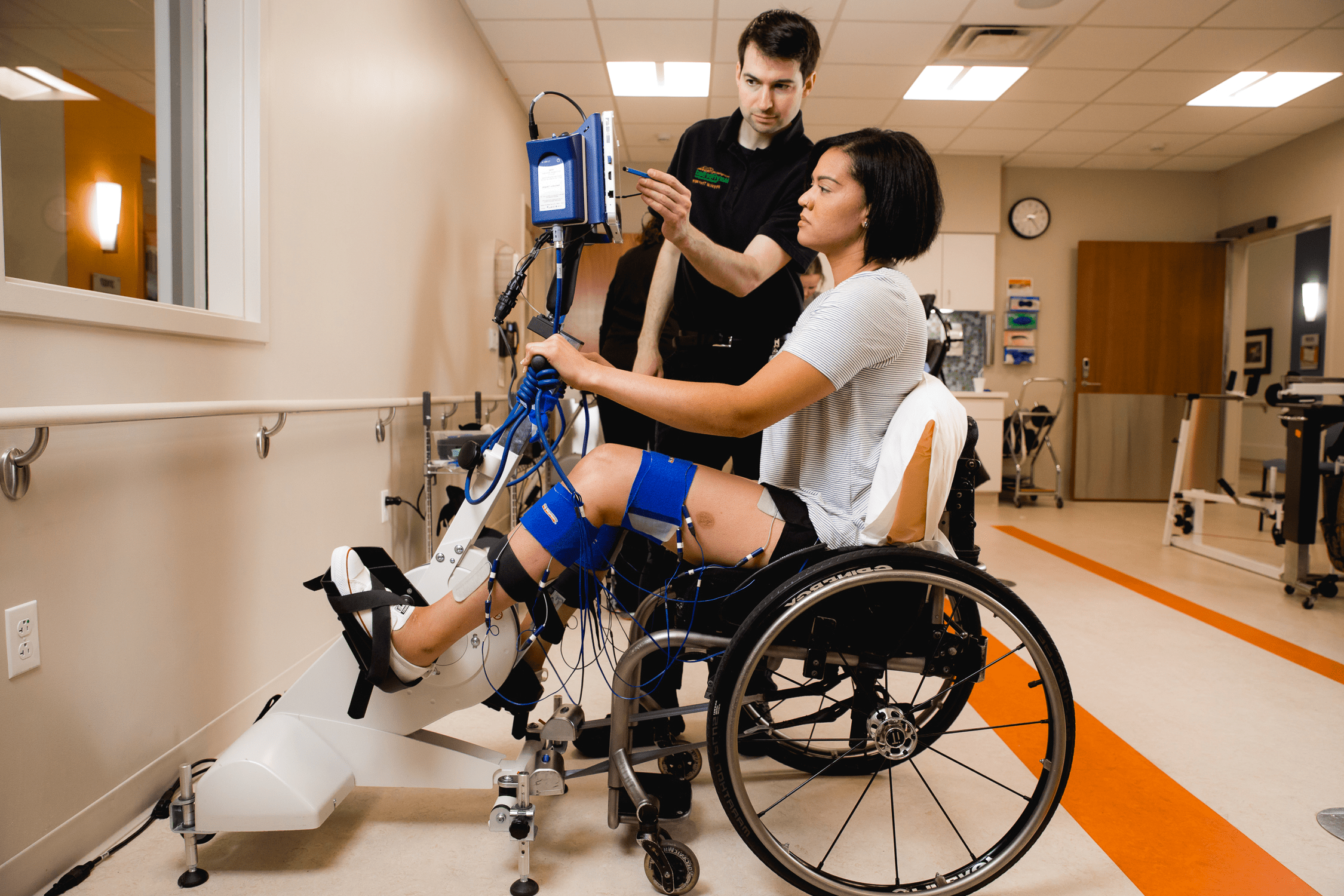


What’s happening at Mary Free Bed?
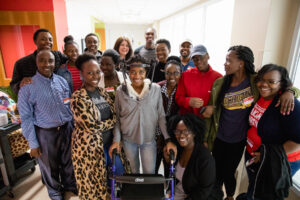
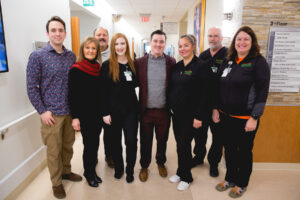
Ready to get started with Mary Free Bed?
Wherever you are in your journey, we’re ready when you are. Our team is here to listen, support and help guide your recovery. Whether you’re just starting out or picking up where you left off, we’re ready to support your goals—big and small.
